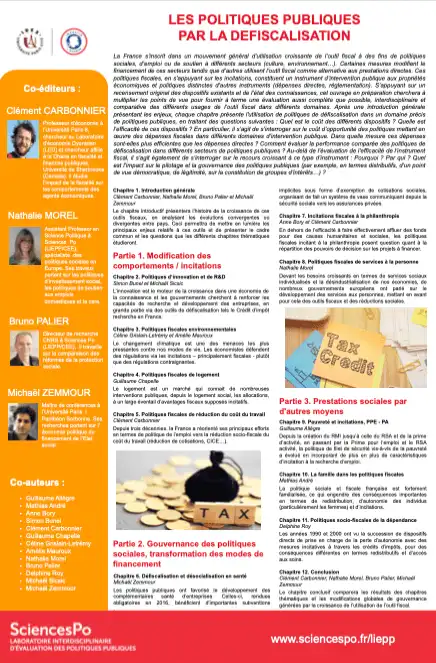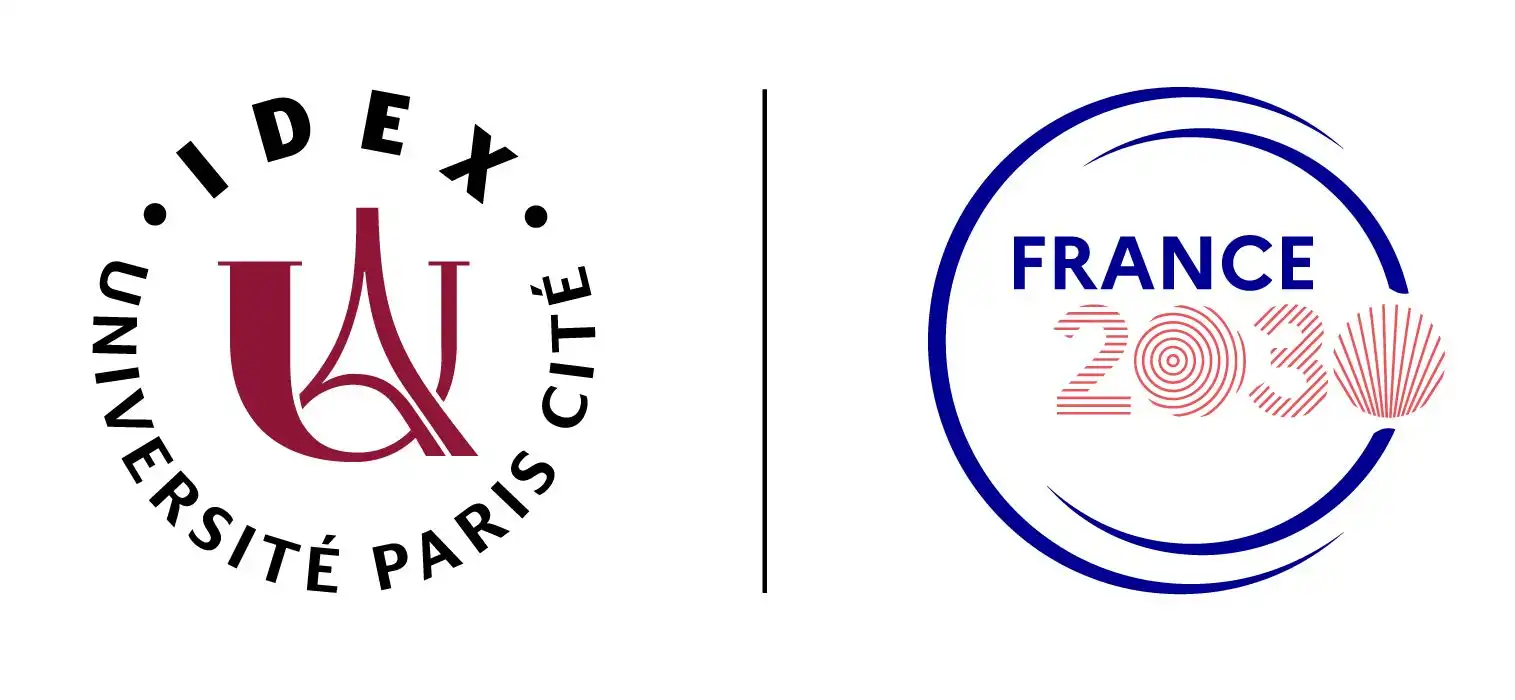
Home>Research>Project>Politiques de défiscalisation (DEFISC)
Politiques de défiscalisation (DEFISC)
Research team:
Clément Carbonnier (Université de Cergy-Pontoise, Sciences Po LIEPP)
Guillaume Chapelle (Sciences Po, LIEPP)
Gabrielle Fack (PSE)
Camille Landais (LSE)
Nathalie Morel (Sciences Po, CEE et LIEPP)
Alix Myczkowski (PSE)
Bruno Palier (Sciences Po, CEE et LIEPP)
Delphine Roy (PSE)
Michaël Sicsic (CRED)
Camilla Stronati (assistante de recherche)
Camille Urvoy (Sciences Po, département d'économie et LIEPP)
Michaël Zemmour (CES - Université Paris 1 Panthéon-Sorbonne, Sciences Po LIEPP)
Project description:
France is part of a general trend of increasing use of taxation as a tool for social policy, employment or support for various sectors (culture, environment, etc.). Some measures change the way these sectors are financed, while others use tax as an alternative to direct benefits. These tax policies, by relying on incentives, constitute an instrument of public intervention with economic and political properties that are distinct from other instruments (direct expenditure, regulation).
Based on an original survey of existing systems and the state of knowledge, this project aims to multiply viewpoints in order to ultimately provide as comprehensive as possible an interdisciplinary and comparative assessment of the various uses of the tax tool in different fields, by addressing the following questions:
What is the cost of the various systems?How effective are they? In particular, the aim is to examine the opportunity cost of policies involving tax expenditure in different areas of public intervention. To what extent is such expenditure more efficient than direct expenditure? How can we assess the comparative performance of tax exemption policies in different areas of public policy?
As well as assessing the effectiveness of tax instruments, we also need to look at the growing use of this type of instrument: Why? By whom? What impact does it have on the management and governance of public policies (for example, in terms of distribution, democracy, legitimacy, the formation of interest groups, etc.)?
Poster of the project - May 2022


